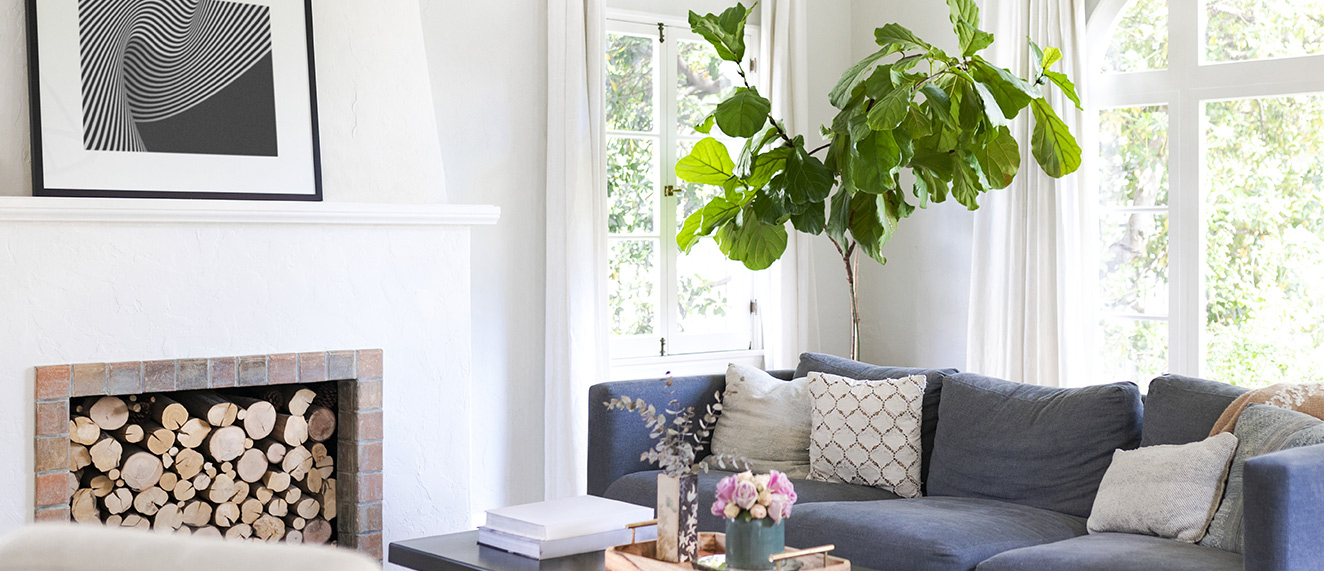In the day-to-day craziness of life, balancing the needs of family, work and self can often create a high-stress schedule that keeps the tempo high and relaxation a precious commodity. Consider making your home an island of calm as an important source of balance.
Keeping it simple, no matter the style
The Japanese call it kanso – simplicity – after one of seven Zen principles, and you don’t need to be a minimalist to apply it to your space. In fact, these tips work even if you’re a shabby chic bohemian maximalist though, of course, your methods of incorporating will vary from your modernist industrial friends or neighbours. It’s all about what brings you peace, so feel free to try any or all these tactics.
Kill the clutter
One designer’s bric-a-brac is another person’s junk pile, so “clutter” can be a very subjective idea. Sometimes the best thing to do to kick start the decluttering process, is a deep clean. No matter how busy your decorating scheme, though, certain places must be clutter-free, such as the kitchen counters and sink. Keep traffic areas clear for easy movement and, if anything is closing in on you when you sit down, let it be the arms of a wingback chair. Any time cozy turns to cramped, there’s a decluttering opportunity.
Get natural
There’s no need to be knee-deep in Arts and Crafts to benefit from the peace the natural world offers. It may be as simple as putting up a window treatment around a view of your favourite flowers in the garden. Natural light is often a stress reliever in weather fair or foul.
The principle is called biophilia – the love of nature – and a touch of it in your design scheme can be both personal and calming. Your choice of houseplants, for instance, can help bring a personal focal point to a room.
See the light
Don’t take your lightbulbs for granted! Using different sources, including natural light (or its absence), can evoke virtually any emotion, so choose wisely. Few people would think of a fluorescent fixture over their bed as a relaxing way to ease into sleep. Think of light as a design layer as well as functional. Add lighting styles and levels to help you relax.
Colour and calm
Most people have a sense of the colours they respond to, as well as moods the colours evoke. Yet, there are also many people trying to relax in rooms lined with generic builder’s paint. Consider how colour psychology influences your sense of calm and make the switch.
Comfort quotients
Some like silk while others like linen. Design isn’t strictly about appearance. An attractive bedding option moves from satisfactory to superior when it’s made from a fabric you love to touch. Aromatherapy may be as simple as a light wave of vanilla or refreshing hints of lavender. Comfort can arrive through any of your senses, and any of these can bring you peace.
Most everyone has seen a sofa they love but, after trying it, wonder what sort of creature it was designed for, since it’s obviously not comfortable for humans. There’s a reason why the stereotype of the dad with the ratty recliner exists. Sometimes comfort is in the behind of the beholder.
Heal thyself
No one knows what speaks to you quite like you do. No matter how sparse or busy your personal design style, never forget the touches that bring you peace. Perhaps it’s a photo from a recent vacation, a curio you received as a gift or maybe an old canoe paddle that reminds you of long-ago summers at camp.
Managing stress is a big part of a balanced life in today’s busy world. Caring for our homes is an extension of caring for ourselves, so approaching design with calmness in mind is hardly a pretension, but instead a powerful tool for wellness.
Source: https://www.creacafe.ca/finding-calm-design-trends-to-balance-stress/
